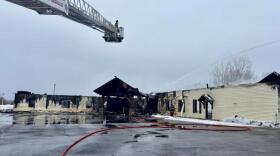After coming up 89 people short in the 2020 census, New York is set to lose a congressional seat ahead of the 2022 election.
To prepare for the reapportionment process, state lawmakers proposed some changes to redistricting regulations during this year’s election cycle. However, the proposition failed by more than 300,000 votes in November.
New York Law School adjunct professor and senior fellow, Jeffrey Wice, said the amendment would’ve changed a lot going into the reapportionment process.
“The intent of the amendment was to address the calendar issues brought on at the front end by the lateness in getting census data from the Census Bureau due to the pandemic that delays the entire census process,” said Wice.
He said without the adjustments from the proposition, it’s likely that some changes will have to be made to the June primaries if redistricting deadlines aren’t met this winter.
“With the defeat of the amendment, there may need to be an adjustment to the spring primary process,” he said.
Wice said this is uncharted territory for New York so no one really knows how congressional redistricting will play out.
“It's just uncertain and unclear at this point what the commission will do, what the legislature will do, and when this will all happen,” he said.
There were some other notable changes this proposition would’ve made according to Wice.
“The other most important one was the inability to reallocate prison populations to inmates’ homes of record prior to incarceration for congressional districts,” said Wice.
It also would’ve capped the number of state senators at 63, counted state residents who may not be citizens, and would’ve removed the requirement to place whole blocks together in census tracts.







